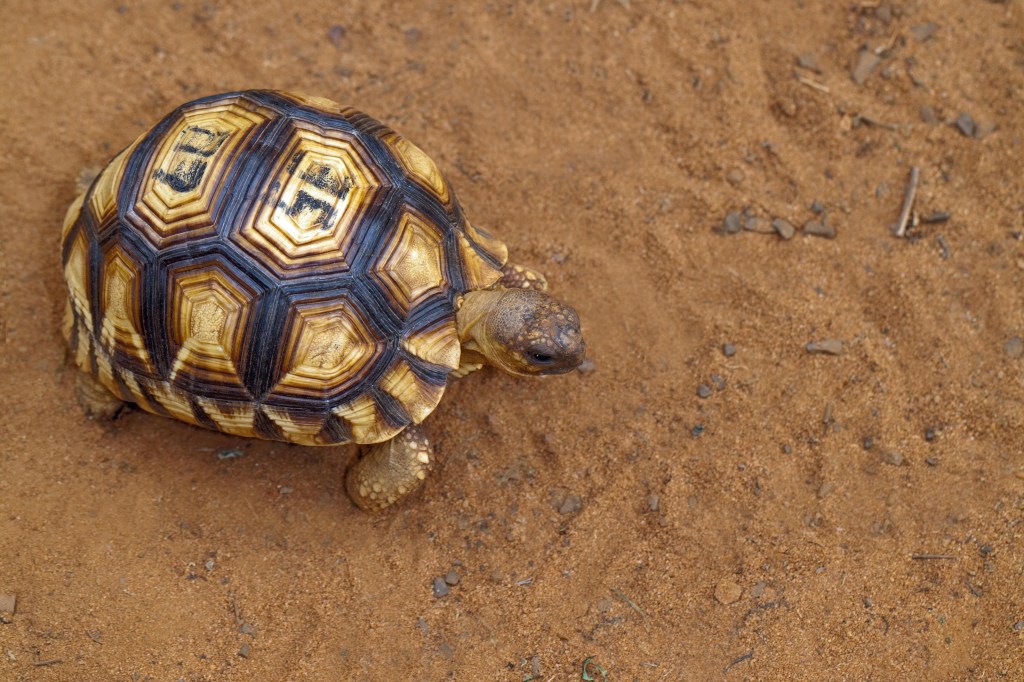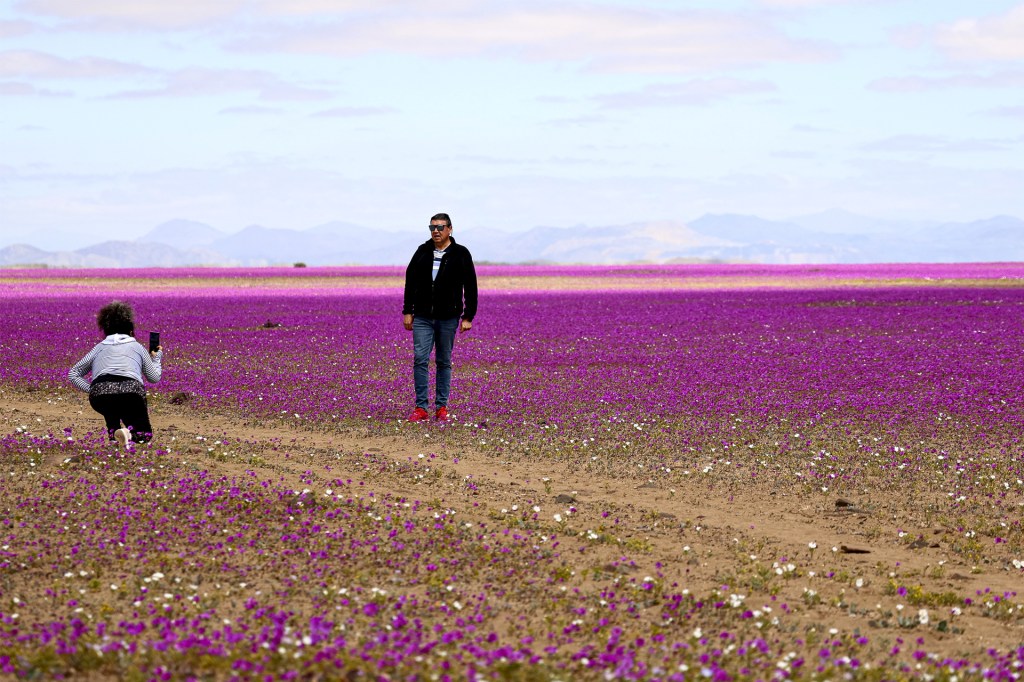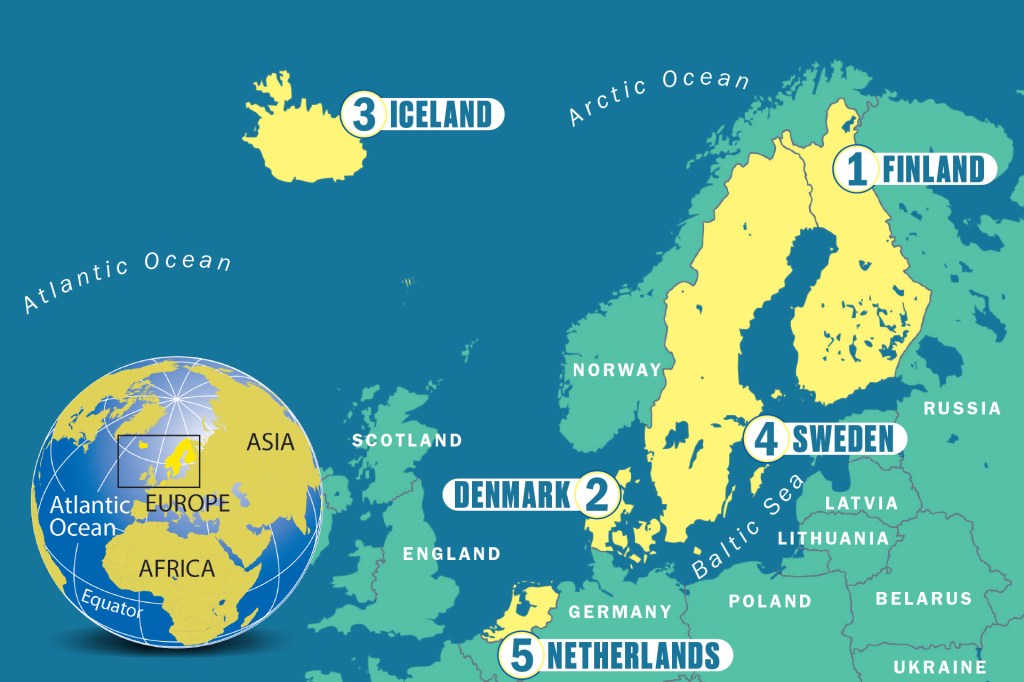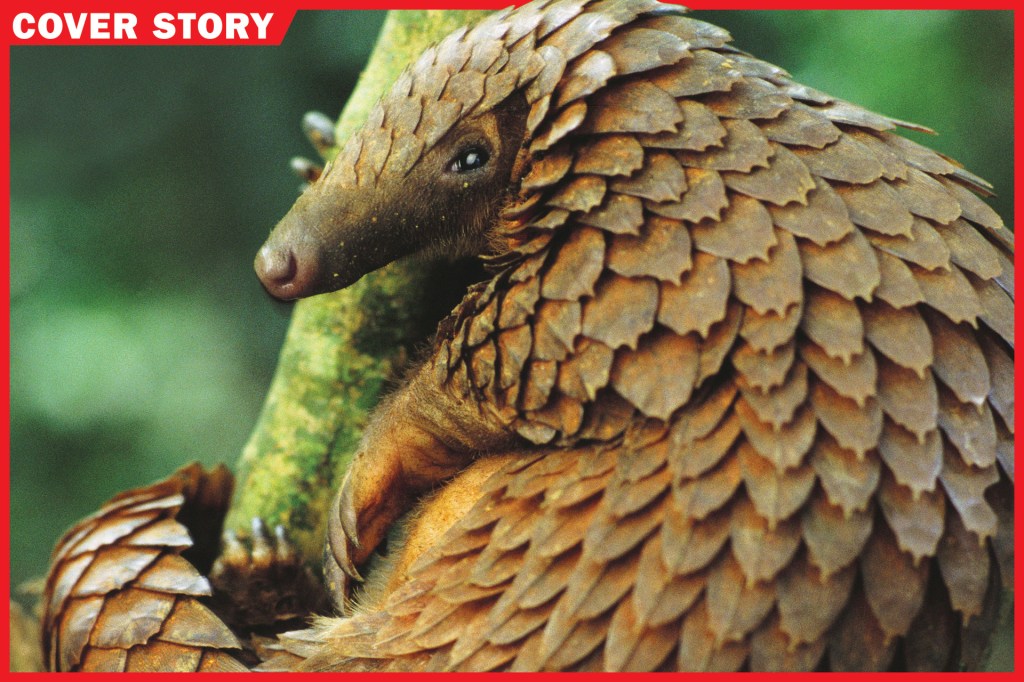
On February 7, police in Malaysia raided a factory and a warehouse in the state of Sabah. They seized
seize
 KATARYNABIALASIEWICZ/GETTY IMAGES
to grab; to take possession of
(verb)
Police seized 17 stolen computers from the thief's home.
more than 30 tons of pangolin products. Pangolins are also known as scaly anteaters.
KATARYNABIALASIEWICZ/GETTY IMAGES
to grab; to take possession of
(verb)
Police seized 17 stolen computers from the thief's home.
more than 30 tons of pangolin products. Pangolins are also known as scaly anteaters.
The raid captured 1,800 boxes of frozen pangolins. There were also nearly 800 pounds of the animals’ scales. The haul was worth at least $2 million.
Sabah is a major hub in pangolin trafficking from Africa to Asia. Trafficking is the business of buying and selling. Since August 2017, more than 40 tons of smuggled
smuggled
 RANDY FARIS/CORBIS/VCG/GETTY IMAGES
moved secretly
(adjective)
The smuggled painting turned up in Ireland.
pangolins have passed through Sabah.
RANDY FARIS/CORBIS/VCG/GETTY IMAGES
moved secretly
(adjective)
The smuggled painting turned up in Ireland.
pangolins have passed through Sabah.
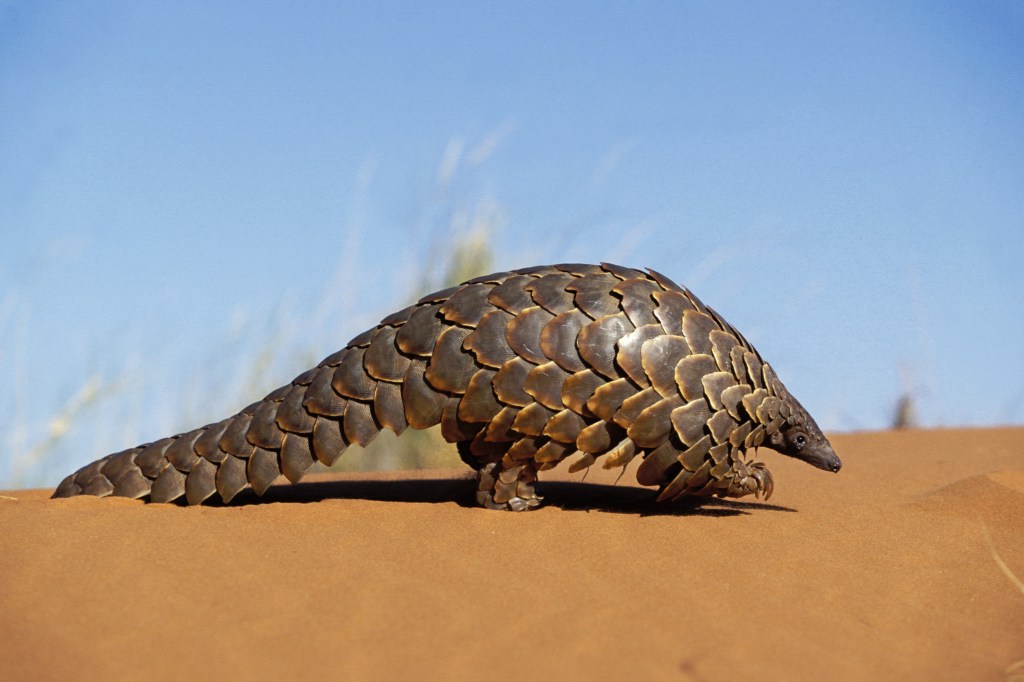
PROTECTIVE COAT A pangolin’s body is covered in as many as 1,000 scales.
NIGEL DENNIS—GETTY IMAGESThe pangolin is native to Asia and Africa. Its meat is a delicacy
delicacy
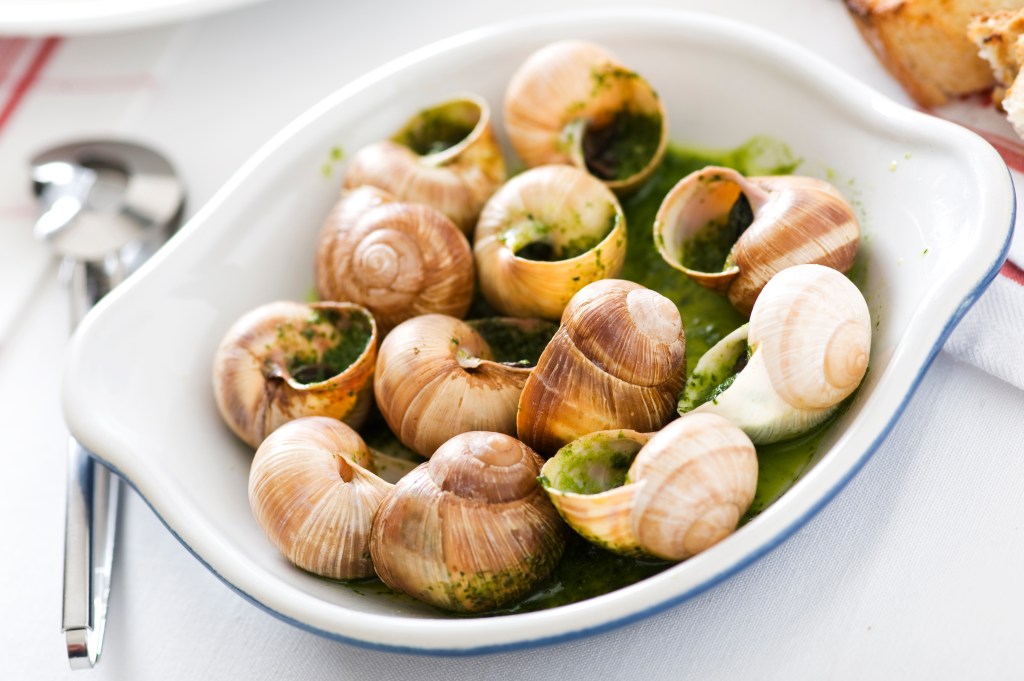 CARLO A/GETTY IMAGES
a food that people like to eat because it is special or rare
(delicacy)
Escargot, or cooked snails, are a delicacy in France.
in some Asian countries. The creature’s scales are also prized. They are made into powder and used as medicine.
CARLO A/GETTY IMAGES
a food that people like to eat because it is special or rare
(delicacy)
Escargot, or cooked snails, are a delicacy in France.
in some Asian countries. The creature’s scales are also prized. They are made into powder and used as medicine.
There is no proof of its effectiveness. But demand for pangolins has made them a target for poachers
poach
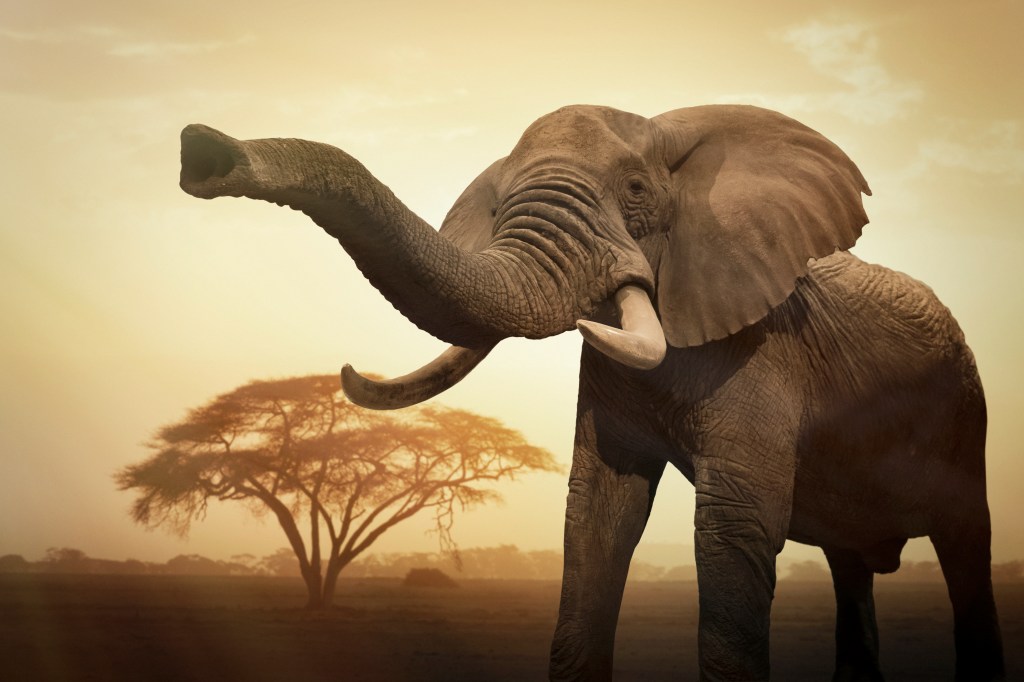 BUENA VISTA IMAGES/GETTY IMAGES
to catch or kill an animal illegally
(verb)
The African elephant is often poached, which could lead it its extinction.
. At least a million pangolins have been poached in the past decade. The creatures may be the world’s most-trafficked mammal.
BUENA VISTA IMAGES/GETTY IMAGES
to catch or kill an animal illegally
(verb)
The African elephant is often poached, which could lead it its extinction.
. At least a million pangolins have been poached in the past decade. The creatures may be the world’s most-trafficked mammal.
British royal Prince William is president of United for Wildlife, a conservation group. In a video, he says: “Pangolins risk becoming extinct before most people have even heard of them.”
Troubling Trade
Pangolin scales are made of keratin. It’s the same material your hair and nails are made of. In the wild, the animal’s scales help protect it from predators. But they can’t protect it from poachers.
Pangolins are disappearing from Asia. So smugglers have turned to Africa for their supply. Malaysian authorities have seized more than 13 tons of African pangolin scales in Sabah since 2017. In January, agents in Hong Kong stopped a cargo
cargo
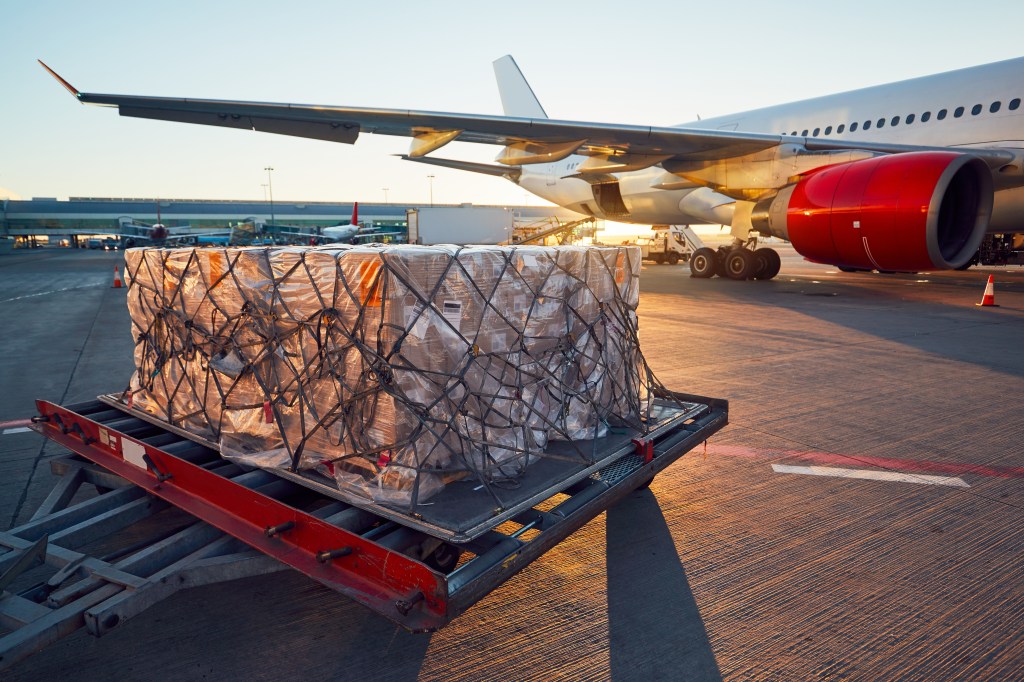 JAROMIR CHALABALA/EYEEM/GETTY IMAGES
goods that are carried from one place to another by truck, boat, airplane, etc.
(noun)
Workers unloaded the plane's cargo.
ship. It was coming from Nigeria. Agents found nine tons of scales. They say the scales were plucked from 14,000 pangolins.
JAROMIR CHALABALA/EYEEM/GETTY IMAGES
goods that are carried from one place to another by truck, boat, airplane, etc.
(noun)
Workers unloaded the plane's cargo.
ship. It was coming from Nigeria. Agents found nine tons of scales. They say the scales were plucked from 14,000 pangolins.
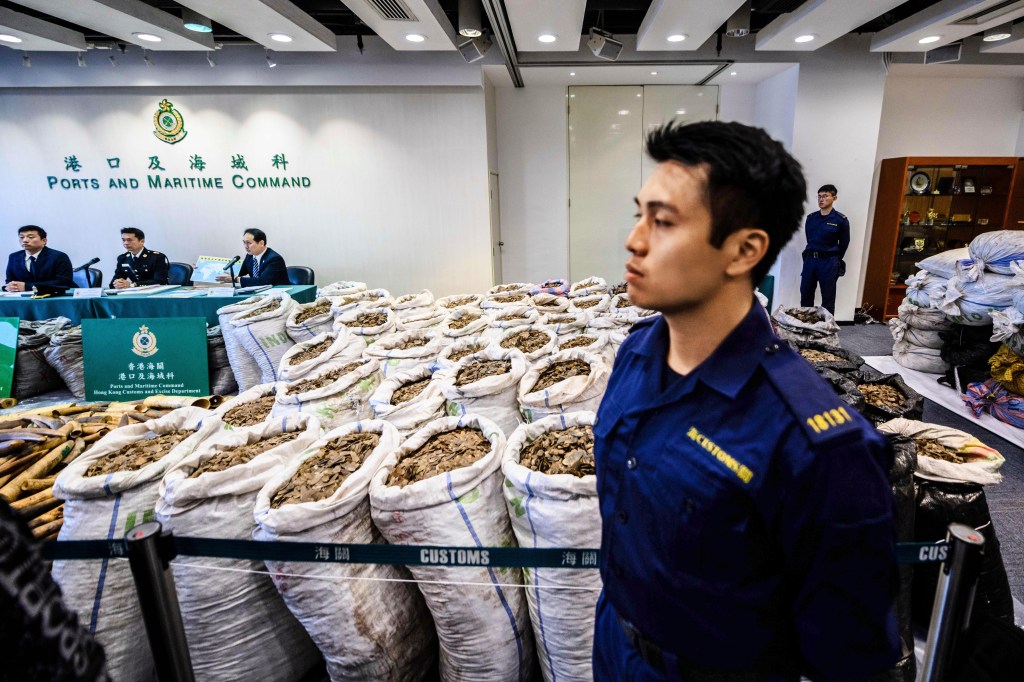
BUSTED Customs agents in Hong Kong display pangolin scales shipped from Africa.
ANTHONY WALLACE—AFP/GETTY IMAGESTo the Rescue
Peter Knights leads the conservation group WildAid. He says African farmers should protect pangolins. “They’re eating ants that destroy crops,” he says of the creatures.
He adds that the way to save the pangolin is to reduce demand. WildAid teaches people how to treat illness without using keratin. Such efforts have worked to reduce demand for rhino horn. It, too, is made of keratin.
But countries can do more to enforce laws within their borders. Governments need to bring poachers and suppliers of illegal wildlife products to justice, Knights says. “The problem is ultimately in the hands of China and Vietnam and the African countries where pangolins live.”
Sidebar: Big Business
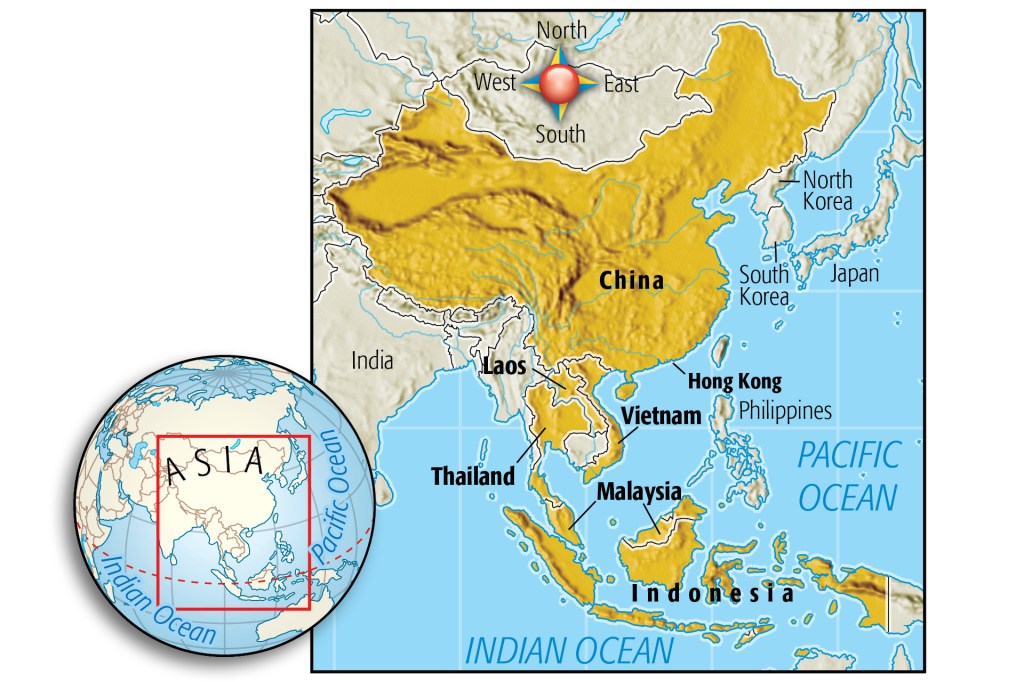
The illegal trade in pangolins reaches around the globe. Today, most pangolin products are smuggled out of Africa. Some shipments make their way to Europe and the United States.
The biggest market for pangolins is Asia. Seven of the top 10 countries or territories most involved in pangolin trafficking are located there. They are China, Hong Kong, Indonesia, Laos, Malaysia, Thailand, and Vietnam. The other three are Germany, Nigeria, and the U.S.





